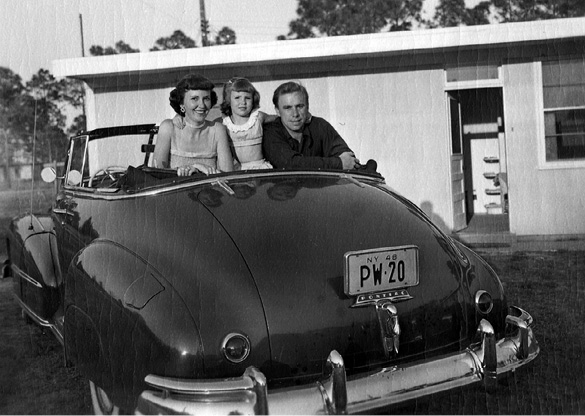The regal career of Harold Reese has fallen more than a little under the shadow of Jackie Robinson. On May 13, 1947, the Dodgers shortstop from Louisville, Kentucky, legendarily wrapped his arm around his besieged teammate, casting a visual testament of their closeness. The irony is that while this memory is indicative of the close, meaningful bond the two developed, it offers myth mixed with fact. “No one else wrote about it...not in New York, not in Cincinnati, not in white papers, not in black—not in 1947,” said Jonathan Eig after investigating the story for Opening Day: The Story of Jackie Robinson’s First Season. “It’s possible that the Robinson-Reese moment took place just as...others remembered it, in 1947. But it seems unlikely.” Eig and Arnold Rampersad (in 1997’s Jackie Robinson: A Biography, noting that Robinson himself made no mention of the gesture in his 1948 autobiography) suggest that the substance for the tale of Reese’s support for Robinson was real, even if the particulars of when and how it was expressed remain in doubt. While historians and fans, insiders and outsiders can natter over the details of this most famous moment, they risk overlooking the greatest shortstop the Dodgers ever had.
Wasn’t he, though? He provided 12 above-average seasons from the position, despite World War II waylaying his career in 1943, 1944, and 1945. He hit nothing like an Alex Rodriguez, but when it comes to the best offensive performances by Dodgers shortstops in OPS+, Reese has two of the top three, three of the top five, and 11 of the top 30. Even though he didn’t play a major league game from the time he was barely 24 years old until he was almost 28, Reese finished his Dodgers life as the team’s all-time leader in runs and walks, second in hits, and fifth in total bases. And for good measure, as baseball writer Rob Neyer notes in his Big Book of Baseball Lineups, Reese was the only man to play in every World Series game—44 in all—between the Brooklyn Dodgers and the Yankees.
At the turn of the present century, historian Bill James ranked Reese the 10th-best shortstop of all time and added that “among the shortstops who were leadoff men and who had long careers...Reese was the most effective leadoff man. [Maury] Wills was more celebrated in the role, but as a practical matter, Pee Wee’s walks led to a lot more runs than Wills’ stolen bases.”
There’s nothing wrong with being remembered for your personality, your good graces and, certainly your uncommon humanity in the face of opposing forces, but it shouldn’t necessarily come at the expense of your accomplishments—even if you have trouble believing them yourself.
“Three themes sound through the years of Harold Henry Reese, son of a Southern railroad detective and catalyst of baseball integration,” Roger Kahn wrote in The Boys of Summer. “The first was his drive to win, no less fierce because it was cloaked in civility. A second theme was that civility itself. Reese sought endlessly to understand other points of view, as with Robinson or with Leo Durocher or with a news photographer bawling after a double-header, ‘Would ya hold it, Pee Wee, for a couple more?’ The final theme echoed wonder. He played shortstop for three generations of Brooklyn teams. Yet near the end, sitting on a friend’s front porch and watching a brown telephone truck scuttle by, he said with total seriousness, ‘I still can’t figure out why the guy driving that thing isn’t me.’”
Instead, Reese drove an entirely different kind of vehicle, right to Cooperstown. He was his own kind of special. James passes along one more Reese anecdote to remember, an origin story specific to the man himself.

Dodgers captain Pee Wee Reese—shown here at Dodgertown in Vero Beach, Florida, with his wife Dottie and daughter Barbara—played shortstop for the Dodgers from 1940–42 and 1946–58 and was a 10-time National League All-Star. He played on seven Dodgers pennant-winning teams, and was a member of the 1955 world champion Dodgers. Photo by Barney Stein. All rights reserved.
“In 1939, Tom Yawkey and two ‘partners,’ Donie Bush and a man named Frank McKinney, purchased the Louisville Colonels for $100,000,” James wrote. “The Colonels had Pee Wee Reese on their roster, a year away from the majors, and Yawkey figured that Reese alone would be worth what he paid for the team. But Bush and McKinney, who were not Red Sox employees, decided they had no reason to let their partner have Reese for free, and voted 2–1 to sell Reese to the highest bidder. Yawkey refused to bid for his own player, and Bush and McKinney sold Reese to the Dodgers for $100,000—the same amount they had paid for the team.”
The Handshake Deal
Before Pee Wee Reese, there was George Shuba. On April 18, 1946, playing for his first game the Dodgers’ farm team in Montreal on Opening Day of the International League, Jackie Robinson homered in his second at-bat. Awaiting him at the plate was George Shuba, who extended his hand in the customary greeting—except that it was anything but customary for a white man to shake a black man’s hand on a baseball field. On the first day of the Robinson’s path to integrating baseball, a meaningful impression had been made.